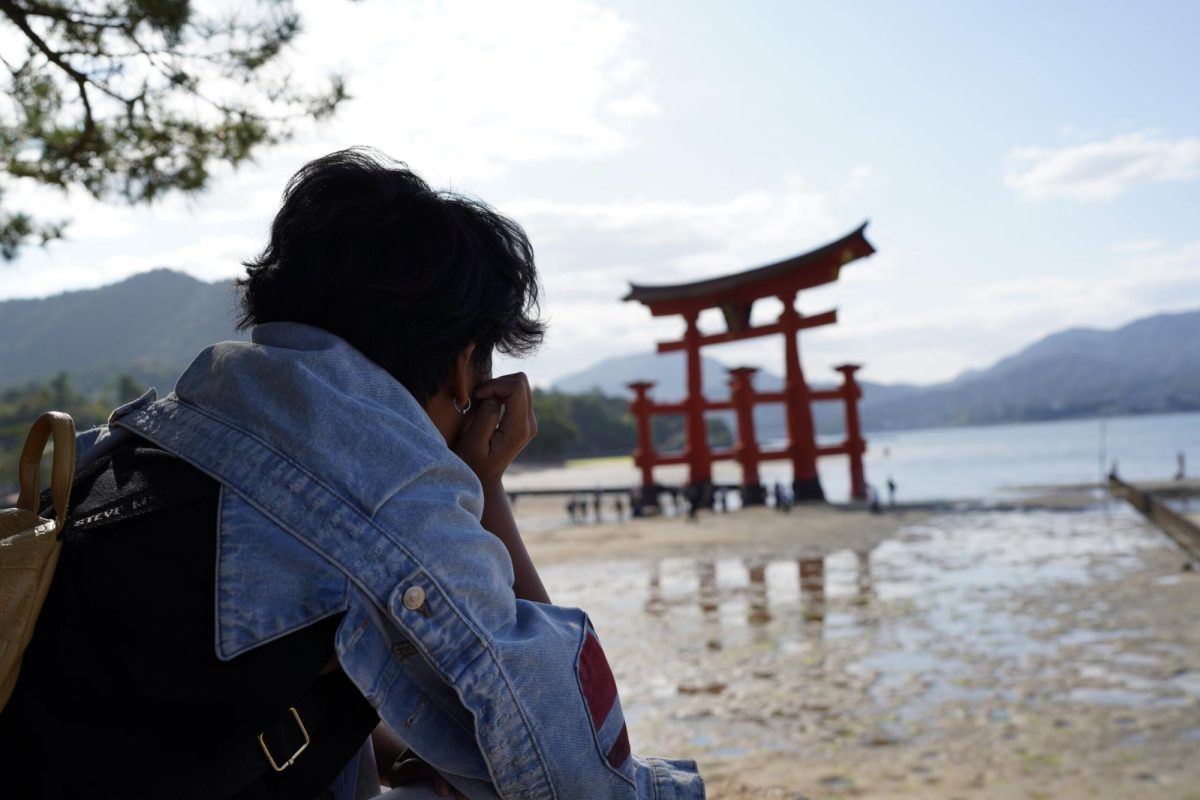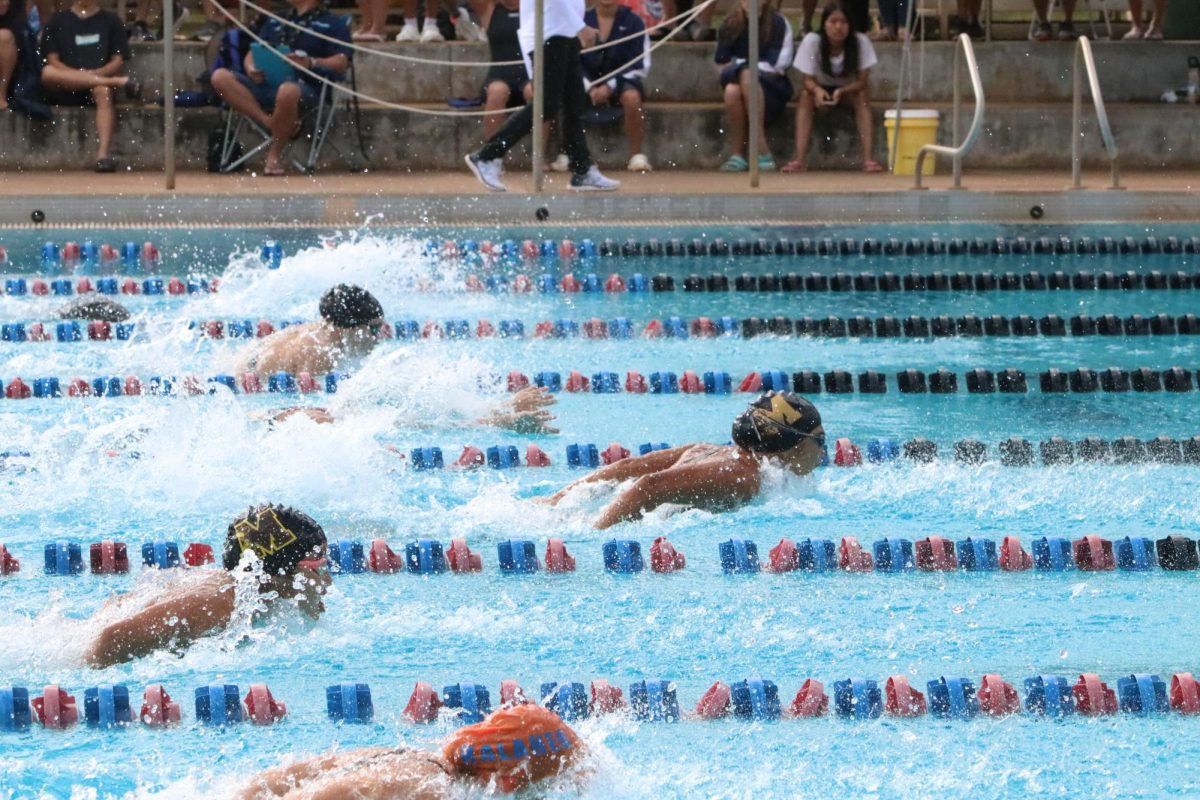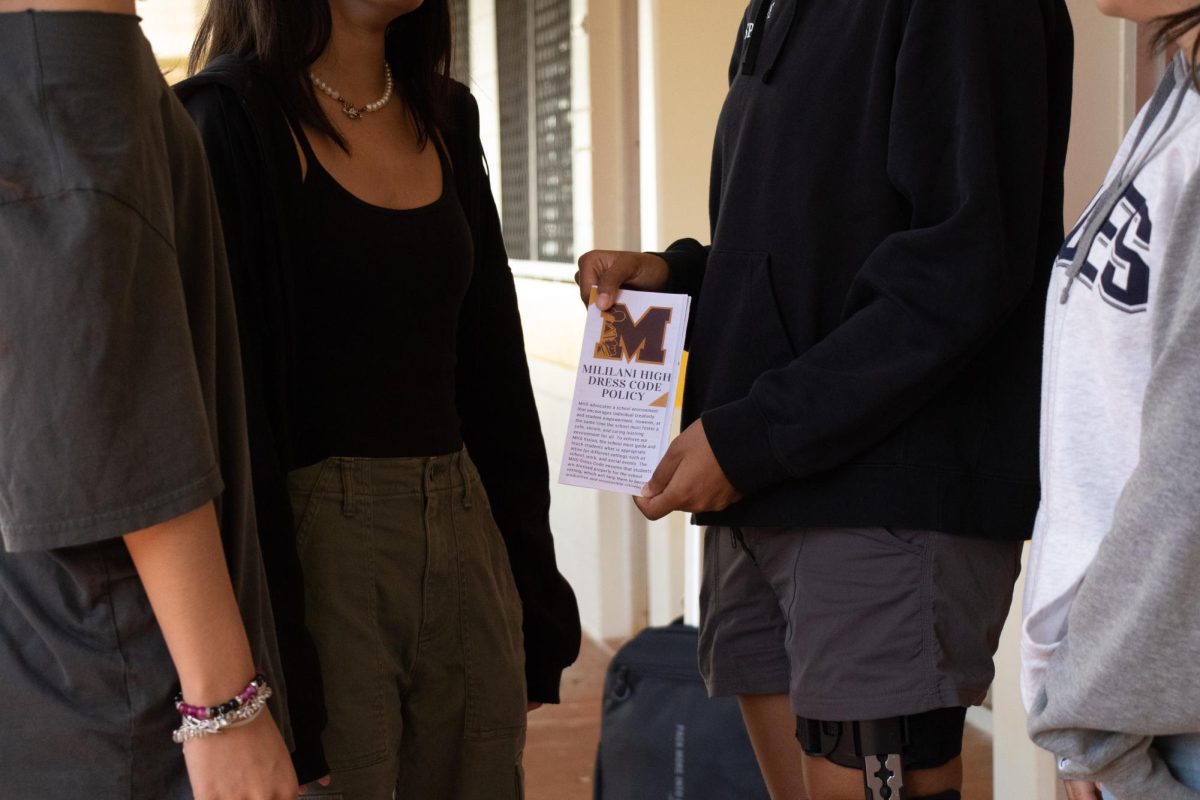Mother, Teacher, Cheer Coach, Cancer Survivor
February 7, 2019
As of Oct. 8, 2018 MHS Cheerleading coach Renesha Kierstedt has been clear of cancer. On Dec. 26, 2017, Kierstedt was diagnosed with stomach cancer and completed all chemotherapy sessions on Aug. 31, 2018. Kierstedt didn’t want to worry her cheer team and did not tell the cheerleaders about her condition until after she had finished her ten month long battle with cancer. This was not her first encounter with cancer, Kierstedt had also been diagnosed with cervical cancer in 2004.
“I just look at life as this wonderful thing. Just be positive, be around positivity, enjoy life to its fullest. And just make sure that I’m able to influence others and I can leave something behind, you know what I mean? Just enjoy it and get as much memories as I can with my babies and so forth,” said Kierstedt.
Before getting diagnosed, Kierstedt had been experiencing stomach pains which led to her visiting the hospital. By doing an endoscopy — a procedure that involves sending a tube down the throat and into the stomach — the doctors were able to find that the cause of her pain was cancerous cells. “I basically shut down. I had to go take blood at that moment so they made me walk from the office to take my blood so I could start everything and I found myself — I was like in a little ball in the hallway. I didn’t know what was going to happen because I’m like the carrier of my family,” said Kierstedt. “(I’m) the main person in my family that kind of holds my family together. I’m the fighter, I’m the one that is active and so forth and to know that now that I had this — what am I going to do? What’s going to happen to my kids? What’s going to happen to my family?”
Kierstedt lives in a single parent household with a daughter at home. Her oldest daughter, Sakari Kierstedt, is currently enrolled in college at the University of Nevada, Las Vegas and her youngest, Zakiya Kierstedt, is a Junior at MHS. With two daughters, she worried about how the cancer could change their lives and how it would impact them if she were no longer able to be with them. “So they basically really rely on me. And then my family relies on me and then everything started coming to play — like my cheerleaders rely on me,” said Kierstedt. “They’re athletes, it’s not just a sport, we’re a family, you know what I mean? If I wasn’t here what would happen? And I thought basically the world would end.”
Kierstedt had decided to keep the cancer a secret from many people in her life to prevent worrying them — this included school administration and her cheerleading team. However, Kierstedt was able to rely on immediate family such as her boyfriend, mom and daughters to help her get through the disease. “They were all the ones that kind of just stepped in and really helped me. I tried to keep it, I kept it from my cheer girls and so forth. I kept it from them until I had my surgery, because I didn’t want them to worry ‘cause they’re worrywarts,” said Kierstedt. “They think of Coach as being the Superwoman and I didn’t want them to see me or have that emotional scar or worry about me because they have enough to worry about as teenagers. So I tried to keep it away as (much as) possible but I did have my — how we call it, my ‘A-Team,’ my ‘walls’ that kept me going.”
When Kierstedt was diagnosed, the doctors told her that they had suspected that the cancer had been caused by an ulcer she had developed overtime from stress. Because her oldest daughter was home for the holidays when Kierstedt was first been diagnosed with cancer, she was able to sit down with her close family and tell them the news together. She had been concerned that her oldest daughter would be too worried about her health and would not want to return to college but Kierstedt encouraged her daughter to go back to school after the holiday break ended. “(It was) extremely sad, especially because they were always like, ‘Well you’re the active one, you’re the one that does more. How did you get it? Why did you get it? What was it from?’ And I still don’t — to this day — know,” said Kierstedt. “And then everyone turned from the sad mode into the fighting mode.”
Throughout the treatment process, Kierstedt’s daughters were her driving force. Her daughters gave her little boosts of encouragement everyday before and after her recovery. “In the beginning, I was okay. I was like ‘I can do this.’ The chemo in the very beginning — I was able to deal with the chemo, the hair falling out, I felt a little slower, but I was fighting. I could do this, no problem,” said Kierstedt. “By the third cycle of chemo then it really started to hit my body. It hit me so I wasn’t able to be as active as how I am now or used to be. They call me ‘Crazy Camel’ because I was always doing something I couldn’t do and that affected me really bad. I felt like I wasn’t able to be there for everybody, like how I used to be but they understood.”
Kierstedt’s treatment process included seven sessions of chemotherapy which had her bring bags of chemo home and to school as well. She was attached to a chemo bag for the entire week before her surgery. Her surgery required the doctors to remove half of her stomach. “When they told me about it they didn’t know how bad the cancer was gonna be. So they did tell me that I had a 50-50 chance of actually losing my entire stomach and having to use a plastic bag for the rest of my life but it all depends once they went in,” said Kierstedt. “So I went into surgery feeling ‘Oh my god,’ I’m actually thinking the worst, that I would come out with no stomach. But I’m still alive but came to find out they didn’t have to take my whole stomach so it’s just partial stomach.”
Recovery from the surgery was difficult as Kierstedt needed to continue with three more sessions of chemotherapy. This prevented her from eating solid foods, and required her to drink liquids for three months. Kierstedt showed decreasing improvement in health as she continued with chemotherapy which brought the doctors to stop the chemotherapy, believing it was only weakening her immune system. “My tongue was swollen, my body was swollen, it was very hard to the point that I got more depressed. But it was — it was more off season; I wasn’t in school. So it was more the summertime and everything,” said Kierstedt. “But then after that, I was able to recover and my doctor saw how I was doing and he realized that I was getting worse. Now all my symptoms are getting worse; they went in, they took the cancer out, I was on chemo but these last treatments made me worse. So he cut me off the chemo.”
Kierstedt didn’t tell people about her cancer until after she had gone through surgery and completed chemotherapy. Some cheer girls found out after she had been diagnosed with cancer but Kierstedt had suspected that some girls had known about her cancer before she officially announced her recovery. “So they didn’t really know until I posted ‘Congratulations I am chemo free,’ and then I told everybody on a Facebook post because everyone knew something wasn’t right about me. And then they were like ‘What? Wow I didn’t know.’ I didn’t really want to interfere with other people and have them worry about me. That’s the last thing I really wanted,” said Kierstedt.
Now recovered, Kierstedt has been working towards lowering her stress levels. She watches what she eats, stays active and keeps her stress amount in mind to prevent any possibility of future ulcers. “Every single day I cherish with my daughters, with my friends. I don’t take nothing for granted. I’m only around positives. I can’t be around the negatives,” said Kierstedt. “But basically taking everything — I don’t take nothing for granted. I mean if I’m able to walk from here (portable five) to the office without breathing hard cause at one point I wasn’t able to, I had to get security to take me ‘cause I was on new chemo and so forth and my body was just drained. I celebrate those things, I celebrate every small thing possible.”
Kierstedt looks up to the people who had beat cancer as well. These were the people she talked to if she needed to speak about what she was experiencing or to receive advice. Kierstedt believe that these experiences should be shared and she makes sure to let people know that they can come to her if they need to talk as well.“ Just fight. Keep fighting, I know it gets hard. And it’s still, to this day I’m still fighting. It could be, as I said, it can always come back. But just fight, but you gotta make sure you’re happy. ‘Cause chemo’s no joke. Cancer is no joke. And don’t give up,” said Kierstedt. “Have your circle of friends, don’t give up, but share your story so that other people are aware so that they find someone they can talk to or anything.”
Throughout her treatment, Kierstedt continued coaching her cheerleading team and was able to have a successful cheer season with the help of her assistant coaches and cheer moms. In the 2018 cheer season, Kierstedt coached the team to OIAs, earning them the title of OIA Champions and also second in it. “It was hard because I’m so used to going full out. I’m so used to screaming and yelling and getting really into it so that they can into the routine and then I had to control that cause I didn’t want to pass out or anything like that. So that was hard for me because I couldn’t go full out for them,” said Kierstedt. “But my athletes are just all around athletes so they knew when to turn it on. They made it easier for me because they’re just a goofy group of athletes.”
Kierstedt is now recovered and continues to be a role model for her daughters and students. She will soon begin preparing and having tryouts for the 2019 cheer season.



